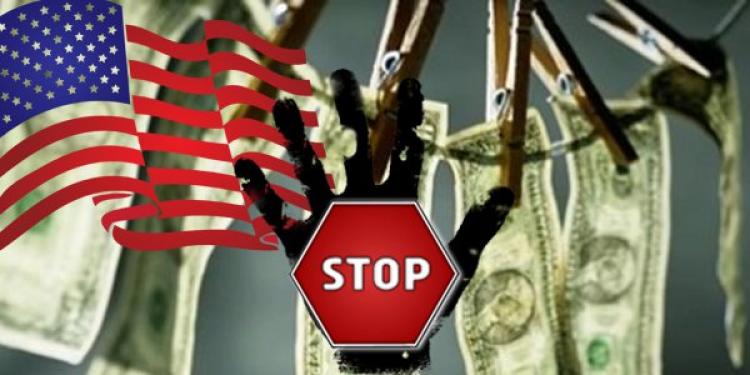Regulated Online Gambling in USA Helps Prevent Money Laundering
Posted: May 7, 2014
Updated: October 4, 2017

A total ban on online gambling in the USA will not stop money laundering, but a regulated market will.
An article says money laundering is pointless in a regulated US online gambling market
• Article by renowned gambling journalist
• Outlines proof that money laundering will not work at legal online gambling site
• Thus, a total ban under American gambling laws is not a good idea
A renowned American journalist says money-laundering is virtually impossible at the licensed and regulated online poker sites in the United States. Steve Ruddock has recently published a long editorial article proving that there’s very little chance for fraudsters looking to launder money to do so at current internet based poker rooms in the USA.
The claim goes in direct opposition to what the Coalition to Stop Internet Gambling, sponsored by Sheldon Adelson, has been heavily emphasizing. The Coalition and other opponents of online gambling in the country has been putting pressure on changing American gambling laws and introducing a blank ban on online activities.
Anti-online gambling activists proved wrong
The Coalition to Stop Internet Gambling and many other anti-online gambling bodies and organizations have been claiming all along that online gambling businesses are primarily used for money-laundering fraudsters. Steve Ruddock, however, goes on to say that a total ban will most certainly lead to rise in illegal gambling operators’ numbers, which don’t set the same security standards as the legal ones, and thus will be less prone to criminal dealings.
The currently operating online casinos in the United States and other online gambling establishments have to go through a number of stringent procedures before receiving a license. Moreover, they have to comply with further regulations after their operations commence. Ruddock claims: “There is simply no incentive for money launderers to choose regulated online poker to scrub their money. There are countless ways that this can be accomplished that are easier, cheaper, and leave less of a paper trail.”
Ruddock’s points in support for regulated online gambling
Steve Ruddock’s article can be summarized to the following points, which clearly prove that regulated online gambling business in the United States seriously outweighs a total ban on such activity in the country.
In support of his argument, Ruddock points out:
– Know your customer (KYC) requirements ensure that operators demand proof of identity and age from their members. This includes requirements for accurate and provable personal details such as Social Security number, name, date of birth and address
– No one has presented any empirical or tangible evidence that the total ban on online gambling in the United States will work and prevent criminal activity
– Regulated online gambling markets in the United States restrict their players virtually making money laundering a useless activity. Online gamers are restricted to one state in order to compete against each other, which is in direct contradiction to the main rule of money laundering: “Do it internationally”
– All online gambling operators follow the regulation where they need to fully comply with the Bank Secrecy Act. This means that any big financial transaction (deposit or withdrawal) must be reported to the authorities. At a recent legislative hearing on online poker in California a renowned lawyer, Sanford Millar, had a couple of words on this, and Steve Ruddock quotes him: “Money laundering is not an issue for intrastate online poker. There are too many trails.”
– The large deposits and withdrawals will not only be reported to the authorities, but also questioned by the operators themselves, servings as a first-hand protective wall against money launderers
– Ruddock also quoted words by Tobin Prior, an executive at Ultimate Gaming, stating that there is evidence to prove that technology designed to detect money laundering and KYC checking actually works in practice
– Regulated online gambling sites in the United States do not support player-to-player transfers, further minimizing the risk of money laundering.
The battle continues
Last year, when the online gambling returned to the United States in Delaware, New Jersey, and Nevada, everyone thought that the war is basically over. But opponents of legalizations have gained brand new momentum when Sheldon Adelson started to heavily support the anti-online gambling movement.
Adelson’s reasons are obvious, being a land-based casino tycoon, he’d be much more happier if gamers came to his establishments rather than spend money at a variety of online gambling facilities. Adelson is not only supporting movements with his words, but lobbies heavily both on state and on the federal level and sponsors anti-online gambling organizations.
Nonetheless, it seems that people in various state are supporting legal online gambling, based on latest polls. And although the business didn’t go off to the expected good start in three states, it is still expected to pick up and benefit not only players themselves, but state coffers as well.












